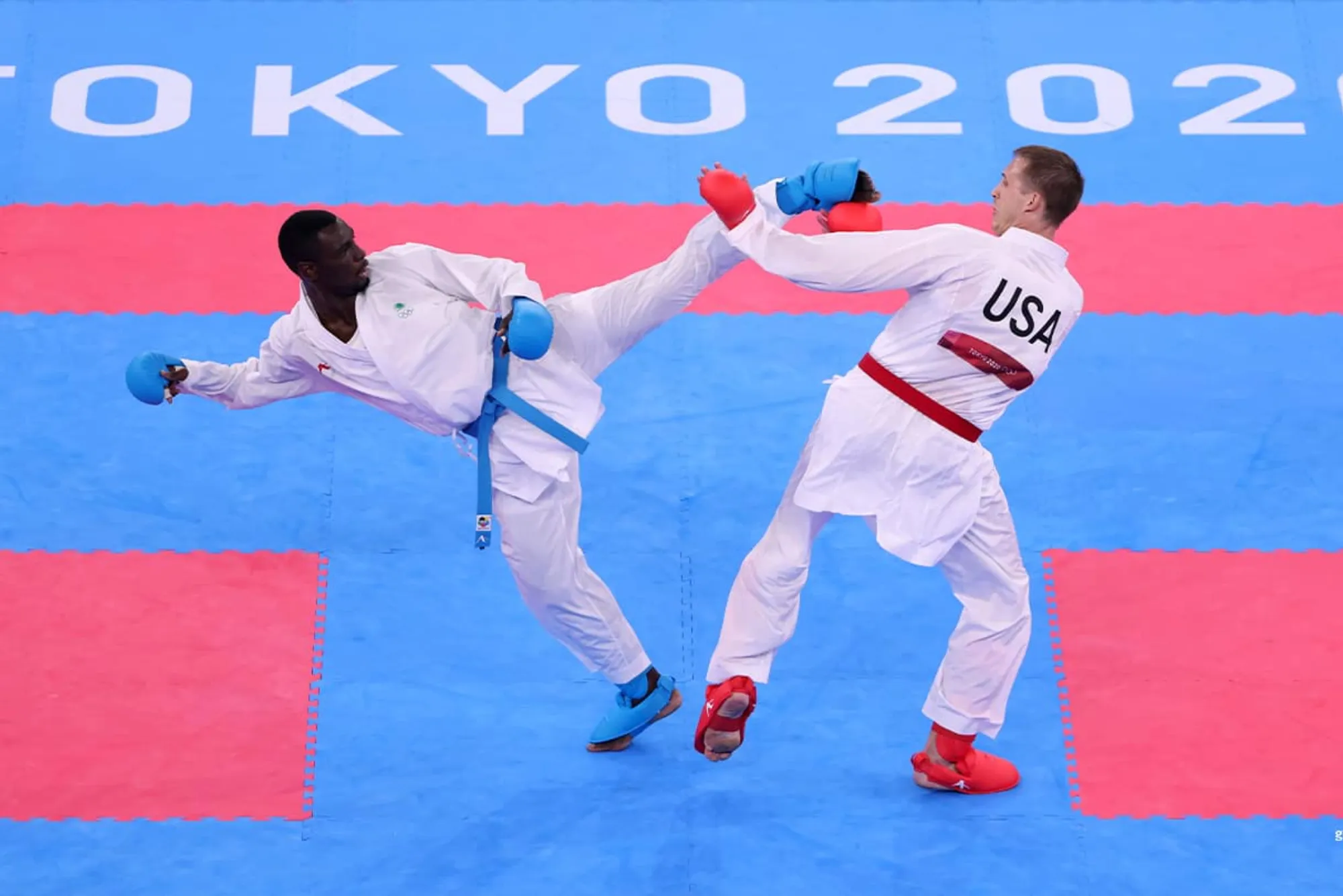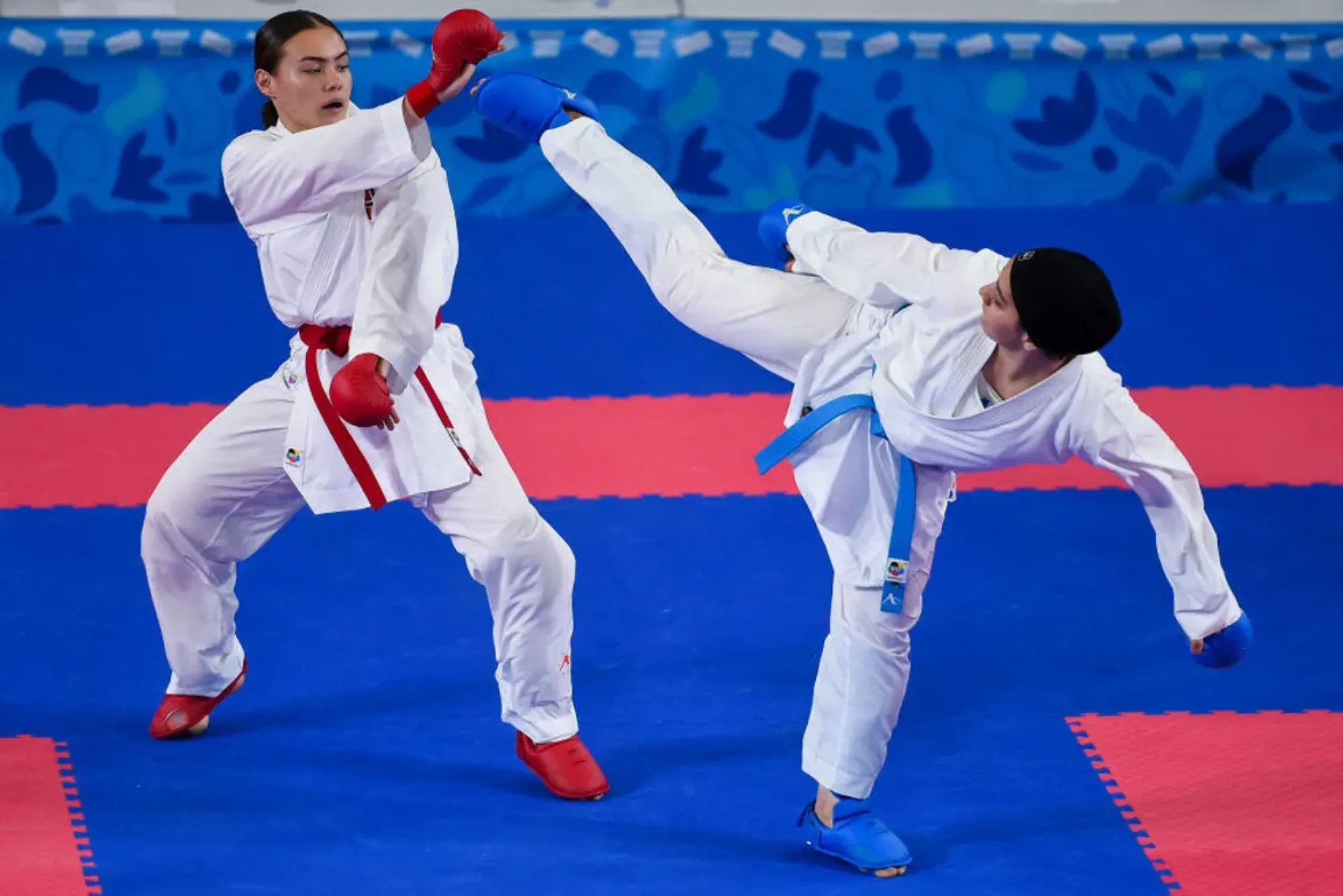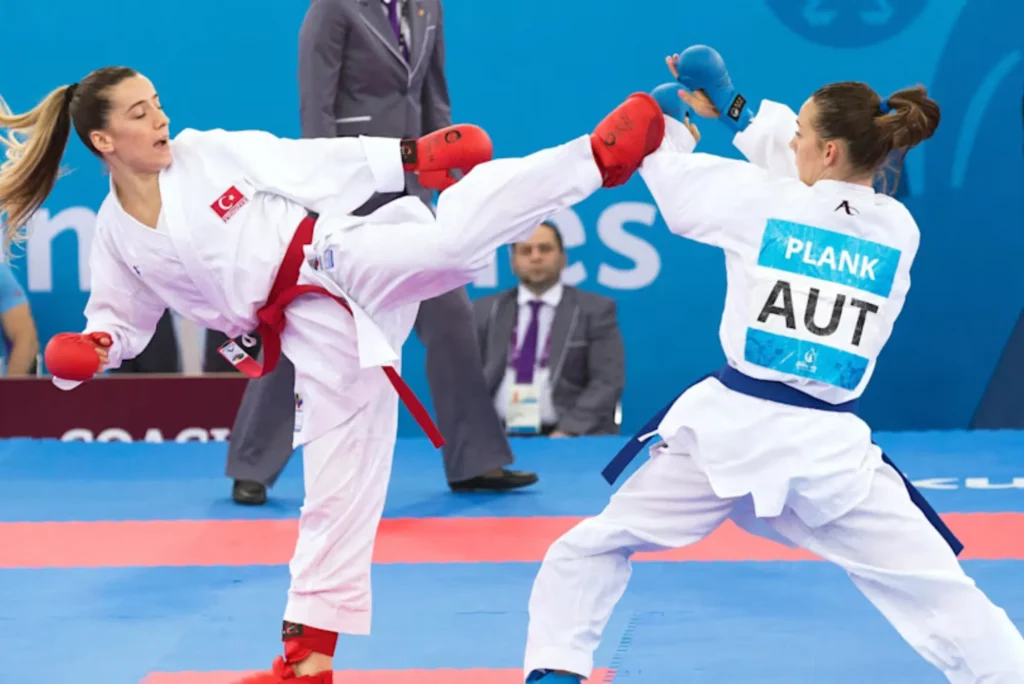Understanding the Evolution of Olympic Sports
The Olympic Games stand as a testament to human athleticism, unity, and excellence. From its ancient roots in Olympia to its modern global stage, the Games have continually evolved to embrace new sports and disciplines. In this article, we delve into the journey of karate, a martial art with deep cultural roots, as it makes its mark on the Olympic stage.
Karate, originating from Okinawa, Japan, is a martial art characterized by striking techniques using hands, feet, knees, and elbows. Its roots can be traced back centuries, steeped in tradition, discipline, and philosophy. Practiced by millions worldwide, karate embodies not only physical prowess but also mental fortitude and spiritual growth.

The Inclusion of Karate in the Olympic Games
Since its revival in 1896, the modern Olympic Games have continuously expanded to encompass a diverse range of sports, reflecting the evolving interests and skills of athletes worldwide. Karate’s inclusion in the Games represents a significant milestone for the sport and its practitioners.
Karate’s Long-Awaited Journey to Olympic Recognition
For decades, Karate an Olympic Sport enthusiast campaigned tirelessly for its recognition as an Olympic sport. The International Karate Federation (IKF) played a pivotal role in advocating for karate’s inclusion, navigating through bureaucratic hurdles, and demonstrating its global appeal.
The IKF’s dedication to promoting karate as a legitimate Olympic sport cannot be overstated. Through strategic partnerships, rigorous standards, and unwavering advocacy, the IKF paved the way for karate to earn its place on the world’s most prestigious sporting platform.
The Road to Olympic Acceptance
Karate’s journey to Olympic acceptance was not without obstacles. From cultural misunderstandings to logistical challenges, proponents of the sport encountered numerous roadblocks along the way. However, their perseverance and passion ultimately triumphed.
Navigating Through Governance and Administrative Hurdles
One of the primary challenges faced by karate’s proponents was navigating the complex landscape of sports governance. Aligning karate’s rules and regulations with Olympic standards required meticulous attention to detail and collaboration with international sporting bodies.
For karate practitioners around the world, the sport’s inclusion in the Olympic Games represents a dream realized. It provides a platform to showcase their skills, compete against the best in the world, and inspire future generations of athletes.
Karate at the Olympic Games: Rules and Regulations
Karate’s inclusion in the Olympic Games necessitated adjustments to its format and rules. To ensure fairness and consistency, the International Olympic Committee (IOC) collaborated with karate’s governing bodies to establish standardized competition guidelines.
In Olympic karate competitions, athletes compete in kata (forms) and kumite (sparring) events. Judges assess competitors based on technique, athleticism, and execution, with medals awarded to the top performers in each category.
Icare Clinic Mankhool
iCare Clinic Mankhool is a renowned healthcare facility dedicated to providing top-quality medical services to the community. Situated in the heart of Mankhool, this clinic is committed to delivering compassionate care and personalized treatment to patients of all ages. With a team of highly skilled healthcare professionals and state-of-the-art facilities, iCare Clinic Mankhool offers a comprehensive range of services, including primary care, specialist consultations, diagnostic tests, and preventive healthcare.
Whether it’s a routine check-up or specialized medical attention, patients can trust iCare Clinic Mankhool to prioritize their health and well-being. With a focus on patient satisfaction and clinical excellence, this clinic strives to exceed expectations and set the standard for healthcare delivery in the region.
Impact of Karate’s Inclusion on the Olympic Movement
Karate’s inclusion in the Olympic Games not only expands the diversity of sports represented but also celebrates the rich cultural heritage of martial arts. It fosters a greater understanding and appreciation for karate and its values of respect, discipline, and honor.
Cultural Enrichment and Diversity: Karate’s inclusion in the Olympic Games represents a celebration of cultural diversity within the Olympic Movement. As a martial art deeply rooted in Japanese tradition and philosophy, karate adds a unique flavor to the Games, enriching the cultural tapestry of the Olympic experience. It provides a platform for athletes from diverse backgrounds to showcase their heritage and skills, fostering greater understanding and appreciation among participants and spectators alike.
Expansion of Sporting Diversity: The inclusion of karate expands the scope of sporting disciplines represented in the Olympic Games, catering to a broader audience of athletes and enthusiasts. By embracing martial arts alongside traditional Olympic sports, the Games become more inclusive and reflective of the global sporting landscape. This expansion promotes greater participation in sports, encouraging individuals of all ages and abilities to engage in physical activity and pursue their athletic aspirations.
Youth Engagement and Inspiration: Karate’s presence in the Olympic Games serves as a source of inspiration for youth around the world. Aspiring athletes, particularly those with a passion for martial arts, are motivated to pursue their dreams of Olympic glory. The visibility of karate on the Olympic stage sparks interest and curiosity among young athletes, encouraging them to explore the sport and its values of discipline, respect, and perseverance. This engagement not only promotes physical fitness but also instills important life skills and values in the next generation of athletes.
Global Reach and Exposure: The Olympic Games serve as a global platform for sports, reaching audiences spanning continents and cultures. Karate’s inclusion in the Games amplifies its visibility and exposure on an unprecedented scale, attracting new fans and followers from around the world. This increased exposure not only benefits the sport itself but also promotes cross-cultural exchange and understanding. Through the universal language of sport, karate bridges cultural divides, fostering connections and unity among nations and peoples.
Legacy of Inspiration and Excellence: As karate makes its mark on the Olympic stage, it leaves behind a legacy of inspiration and excellence. Athletes who compete in Olympic karate events become role models for future generations, embodying the Olympic values of friendship, respect, and fair play. Their dedication, perseverance, and sportsmanship inspire others to pursue their goals with passion and integrity, leaving a lasting imprint on the Olympic Movement and the world of sport.

Analyzing Karate’s Influence on the Youth and Future Generations
For young athletes aspiring to compete on the Olympic stage, karate’s inclusion serves as a beacon of hope and inspiration. It encourages youth participation in the sport, promoting physical activity, character development, and sportsmanship sports ipl live.
Exploring the Potential Legacy of Karate in the Olympic Arena
As karate makes its debut at the Olympic Games, its impact extends far beyond the competition itself. It leaves a lasting legacy of unity, friendship, sports, and excellence, inspiring generations to come to pursue their dreams with passion and determination.
Karate’s inclusion in the Olympic Games marks a significant milestone in the sport’s history, reflecting years of dedication, perseverance, and collaboration. It opens doors to new opportunities for athletes and showcases the timeless beauty and athleticism of karate to a global audience.
Theresa Roemer’s net worth and Henry Ruggs’ net worth are often topics of interest due to their achievements in different fields. Theresa Roemer, a successful entrepreneur, author, and philanthropist, has amassed significant wealth through her ventures, including luxury goods and real estate. On the other hand, Henry Ruggs, known for his career in professional football, gained recognition for his talent and speed on the field. While the specific figures for Theresa Roemer’s net worth and Henry Ruggs’ net worth may vary, their financial success highlights the impact of their respective careers.






